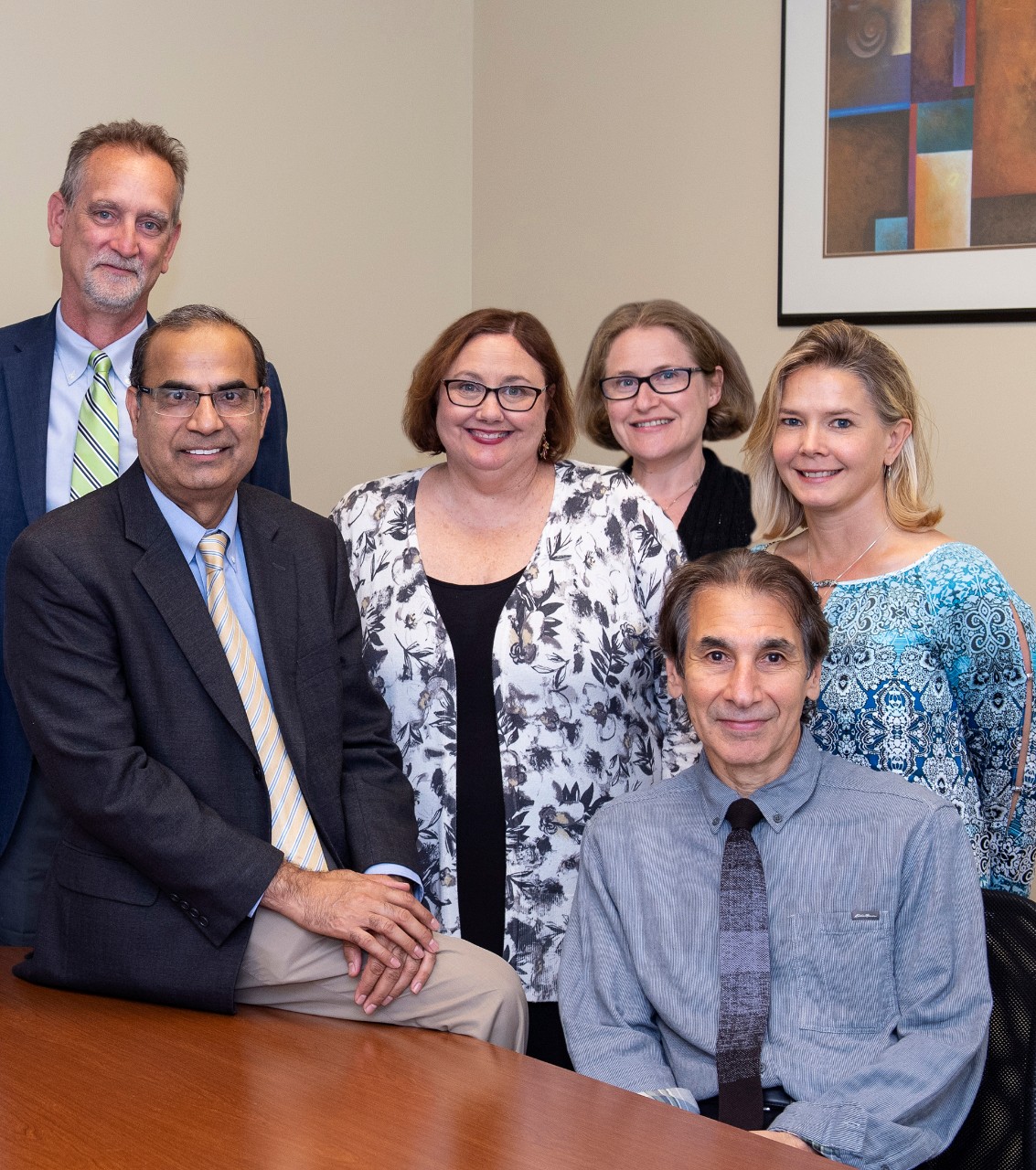
Cognitive aging and the road ahead
UC Geriatric Psychiatry Program adapts to attend to a growing population
According to census projections, by 2030, more than 20 percent of U.S. residents will be aged 65 and over, compared to 13 percent of the population in 2010. Additionally, the American Psychological Association estimates that the number of older adults with mental and behavioral health problems will almost quadruple by 2030 - from 4 million in 1970 to 15 million in 2030.
Geriatric psychiatry, while the term paints a pretty broad stroke, is a specialty area that focuses on mental health associated with aging, says Michael Keys, MD, professor and director of the Geriatric Psychiatry Program at the University of Cincinnati (UC) Department of Psychiatry and Behavioral Neuroscience in the College of Medicine. “Geriatric psychiatry encompasses the diagnosis and treatment of mental health issues associated with aging including depression, anxiety and cognitive changes including memory, and of course the more severe cognitive, behavioral and functional decline associated with neurocognitive disorders such as Alzheimer’s disease and related dementias. Diagnosis can be difficult and complex.”

While the generally defined range for geriatric psychiatry patients falls after the age of 60, Keys says it can all depend on an individual—their health, lifestyle and medical co-morbidities. Individuals can begin to show signs of neurocognitive decline at a wide range of ages. “It’s the miles, not the years that ends up being the defining factor,” notes Keys, who is also a UC Health psychiatrist.
"Also, as people age, related medical conditions, like a stroke, can also prompt anxiety disorders, depression or neurocognitive disorders,” says Muhammad Aslam, MD, an associate professor of psychiatry at UC, who previously directed the geriatric psychiatry fellowship program.
There is much interest in understanding risks such as cardiovascular health, diet, exercise, socialization, alcohol use and smoking, that appear to make a significant impact on cognitive decline and the risk of dementia as we age.
Michael Keys, MD

The UC geriatric psychiatry team (l to r): Michael Keys, MD, director; Muhammad Aslam, MD; Gail Rudolph, nurse practitioner; Amanda Stein, PhD; Marcy Shidler, program coordinator; and Robert Krikorian, PhD.
Keys explains that as geriatric psychiatrists, it is “important to understand the interplay between genetic and modifiable risk factors in cognitive aging. There is much interest in understanding interventions of those risks such as cardiovascular health, diet, exercise, socialization, alcohol use and smoking, that appear to make a significant impact and mitigate cognitive decline and the risk of dementia as we age.”

At UC, a team of seven clinicians and staff specialize in this area of geriatric psychiatry, with services spanning a few different areas, including outpatient and inpatient care at UC Health and telehealth in partnership with the Cincinnati Department of Veteran Affairs Medical Center.
Additionally, the Cognitive Aging Program oversees clinical research focused on health interventions to prevent cognitive decline and improve memory function in middle aged to older adults. Several of the studies, led by Robert Krikorian, PhD, focus on diet and nutrition supplementation, lifestyle changes, or on those with memory disorders like Alzheimer's disease.
Residency and fellowship programs:
Training for the growing need
A geriatric psychiatry residency/ fellowship program is another area where the program sees growth in order to train future specialists for this growing need in mental health care.
Keys says, “We need to attract good candidates to train in geriatric psychiatry. Geriatricians often rank at the top of career satisfaction of medical specialties in the work they do. I do really think it’s one of the most rewarding and satisfying career choices [in health care].”
Previous decades saw a boost in mental health providers for older adults, but that growth has slowed, and far fewer geriatric psychiatrists are being trained in the U.S. than just 10 years ago, at a time the need for clinicians is greater.
The group says the challenge of providing mental health services for the aging population is formidable. There is a decline in those entering specialty training in geriatric psychiatry, with less than half of fellowship positions across the U.S. being filled each year.
There has been a shift in training the general psychiatrist with a more comprehensive focus on the older patient to help meet the clinical care needs.
The department has renewed efforts underway to develop a more comprehensive curriculum, to draw attention and knowledge of geriatric psychiatry to UC medical students, psychiatric residents and the training of geriatric psychiatry fellows.
University of Cincinnati College of Medicine offers residency and fellowship programs in specialty areas of psychiatry including geriatric, addiction, forensic, and child and adolescent psychiatry. Learn more at the Department of Psychiatry and Behavioral Neuroscience.
This story is adapted from the annual print newsletter of the UC Department of Psychiatry and Behavioral Neuroscience. Images within story by Colleen Kelley/AHC Communication Services. Featured image at top: stock photo.
Related Stories
CCM hosts Moveable Feast gala fundraiser on Jan. 24, 2025
Event: January 24, 2025 12:00 AM
UC College-Conservatory of Music hosts its Moveable Feast fundraising gala live and in-person on Friday, Jan. 24, 2025. Presented by CCMpower, a dedicated volunteer group of friends, advocates and alumni, Moveable Feast 2025: A Tempo generates essential support for the next generation of performing and media artists at CCM. Learn more about the event's "artistic menu" in our digital program!
UC hosts second annual Sustainability@UC Week
January 22, 2025
The University of Cincinnati College of Arts and Sciences is gearing up for the second annual Sustainability@UC Week to take place Jan. 27th through Feb. 1st. With a week full of events and activities, students, researchers, educators, staff, and the public are invited to participate and get involved in sustainability at UC!
Fishers, Indiana grad part of inaugural UC adaptive athletics...
January 22, 2025
University of Cincinnati adaptive athletics student athlete Seth Miller and program director Jacob Counts spoke with Indianapolis news station WTHR about the launch of the new program.
